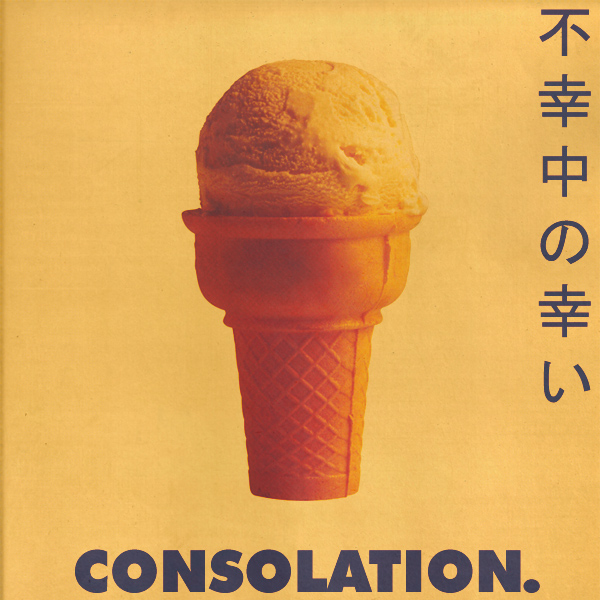
There are only so many things I know how to say in Japanese. I’ve learned that none of them can stop a 15-year-old Japanese girl from crying.
There’s “daijobu,” and “daijobu desu ka?” – “It’s alright,” and, “are you alright?” – but I’d exhausted them, along with my encouraging “ganbattes!” (persevere!) and “otsukare sama deshitas!” (you worked so hard!).
She had cried for an hour by the time we’d left the convention center. A teacher was able to fill the gap for a while, but eventually I was alone with a crying Japanese teenager, tasked with walking her to the train station 20 minutes away.
Beginner’s Spirit
Autumn is speech contest season in Japan. Every English teacher in Japan spends some time in the Fall sitting across from one-to-three students while they repeat a 340-word English speech, verbatim, twice a week for an hour and a half.
Misaki* was pretty good at English, but my advice was never simple enough, so a Japanese teacher would translate the suggestions she agreed with. (She didn’t even pretend to translate when she disagreed).
Misaki worked for about 42 days on this task, just one of the tens of thousands of high school kids across Japan who spend their vital teenage years memorizing speeches about pets, recycling or proms.
Over 42 days her English improved in fits and starts, r’s emerging from “ah’s” and “l’s,” a’s slowly evolved from Japan’s perpetual “san” to “can.”
I’ve been through these contests as a witness, judge (and felt like an executioner). There are always three-way ties for first, second and third place, and the judges usually make at least two incomprehensible decisions.
Some students sound like text-to-speech converters on Ritalin, some stand terrified and speed through their soliloquies like a skipping CD. Many sentences are forgotten and replaced by a burst of tears, the audience awkwardly shifting its gaze as the world’s slowest clock ticks down to zero.
Misaki watched with hope as the text-to-speech converters and speed readers rose for the last roll call of the recitation contest winners. Then she wept for an hour and forty minutes.
Key Expressions
Twenty of those tearful ticks of the minute hand were spent shuffling around searching for a train station. I walked too fast while Misaki kept a towel over her face and an emotional commitment to standing still.
I can understand Japanese better than I can speak it, so I know what she told the Japanese teacher: She had practiced every day and it had come to nothing, she said. It was just like everything else she had tried: Her mid-term exams, her English tests; everything she had worked for this year. She had come so close and then fallen short. She had put in her best effort, it wasn’t good enough, and she couldn’t understand why.
I could relate to all of those things. It seemed to sum up my time in Japan pretty perfectly.
Soft Power
We passed a convenience store with ice cream in the window. Should I buy her an ice cream, I wondered? Ice cream is, after all, America’s most elegant solution for sadness.
But someone would probably call the cops. Or else Misaki would think I was weird for buying her food when she was crying, which suddenly struck me as a creepy impulse.
I had already bought her a soda that she didn’t drink. I imagined sitting there with a melting ice cream cone she didn’t want either, trying to explain why I thought it was a good idea in broken Japanese. I imagined a confused look on Misaki’s face before she was swept into a second wave of tears.
I looked at her. The real Misaki wasn’t crying anymore, just staring four feet ahead of her, stopping because I had stopped. I started walking again, and so did she.
As soon as we passed the conbini, I felt awful about not buying her ice cream.
Kirei/Kirai
We ended up at the subway instead of the JR line because I’m an idiot. She told me we couldn’t take the subway and pointed, silently, in the direction we should have walked, still staring at the ground three feet in front of her shoes.
We came to the crossway and I looked at Misaki from four feet away. She was staring off at the sunset, at clouds with pink and orange bellies suspended in an azure sky.
I knew I should say something, so I did. I gestured skyward and said either “It’s beautiful, isn’t it?” or “I hate it, right?” She kept her mouth closed and her eyes in the clouds.
On the train I once again asked her, “daijobu desu ka?” and she once again replied with “daijobu.” That was all I had. The train pulled into our station and we got off. She turned to me and said, in perfect English:
“Thank you for all of your help. You have been really kind and generous.”
I had kind of forgotten that she spoke English outside of the 362 words we had learned together about the healing power of pets.
“You’re welcome, Misaki. Thank you for working so hard. And you did a good job.”
In English I would explain that I really meant it – in English, you have to explain that you really mean things sometimes, because people are always saying things they don’t mean. And sometimes they’re even saying “I mean it” when they don’t mean it.
You can’t trust anybody in English.
There was no way to tell Misaki that life is usually unfair and that hard work is not a guarantee of anything; there was no way to say that most of us spend our entire lives working really hard just to come up one point short, that sometimes everything aligns perfectly and still, somehow, gets fucked up in cruel and arbitrary ways.
There was no way to tell her it is natural and fine, that these feelings come to everyone and everyone survives: Some people even find the strength to do painfully dorky and beautiful things like practicing dance moves without music in public or reading poems out loud to the people they love or dressing cats in homemade costumes.
You just take a couple deep breaths and keep moving until you die, because giving up feels worse than failing.
No 15-year-old girl wants to hear any of that shit. So I just said what I knew how.
“You did great. Honto desu,” I said. (“It’s true.”)
She smiled for the first time in an hour and a half.
“Thank you.”
You can follow This Japanese Life on Facebook here.
* = I’ve changed a whole bunch of stuff about this story to respect her privacy, so this isn’t her real name.





This was great Eryk. Having worked with high schoolers, I can only imagine how much more awkward it must be with a language barrier. For whatever reason, I often felt like the real adults I worked with had forgotten what it was like to be a teenager and were quite flippant about their trials and tribulations. It seemed like the real adults no longer remembered that the shit they went through in high school formed a good-sized chunk of their personality and developed their coping skills. I tried to keep this in mind when I dealt with an emotional teenager, but also remembered they are a crazy bag of hormones and idealistic worldviews.
Seems like you did the right thing: You didn’t treat her like a child and you didn’t rub it in her face. Also, I think you made the right call with the ice cream.
Pingback: On Awkwardly Consoling Japanese Schoolgirls | This Japanese Life … | TEFL Japan
Very sweet :)
Bahaha, the permalink for this is hilarious! “japan-schoolgirls-notporn”
An unfortunate necessity :)
Eryk: Spectacular. What a great story, and handled tremendously genuinely. This blog will have to become a book someday, even if it’s me printing out printable versions of each entry. That way I can, like, have read it all.
Maybe split it between personal experiences and a guide to Japan.
aww – I wish some one would have hugged you at that moment.
You are right – it’s difficult to know what to say and it’s even harder in a foreign country with language and cultural barriers. And she is a girl – makes it slightly harder.
You did well – it’s probably the most support and consideration someone outside of her friends and family will ever give her.She will always remember you :)
LOLed at this:
I gestured skyward and said either “It’s beautiful, isn’t it?” or “I hate it, right?”
Good job teach!